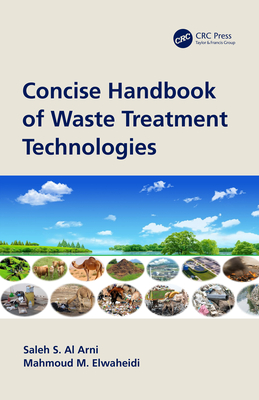Municipal Solid Waste Landfill Technology in Japan
Higuchi, Sotaro
- 出版商: Springer
- 出版日期: 2021-06-20
- 售價: $6,800
- 貴賓價: 9.8 折 $6,664
- 語言: 英文
- 頁數: 324
- 裝訂: Hardcover - also called cloth, retail trade, or trade
- ISBN: 9811627339
- ISBN-13: 9789811627330
海外代購書籍(需單獨結帳)
相關主題
商品描述
Chapter 1 The Transition of Landfill Technologies 1.1 Social situation and landfill disposal volume over landfill 1.2 The transition of landfill waste 1.3 The transition of researches in the field of landfill 1.4 The transition of technologies by the year 1.4.1 The 1960s 1.4.2 The 1970s 1.4.3 The 1980s 1.4.4 The 1990s 1.4.5 The 2000s Present
Chapter 2 Issues and Measures for Landfill Technologies 2.1 Changes in landfill waste quality 2.1.1 Quality of waste carried into landfill sites 2.1.2 The necessity of grasping landfill waste quality 2.2 Issue of high concentration inorganic salt 2.2.1 Issue of calcium scale 2.2.2 Issue of chloride 2.2.3 Generation of by-product salt 2.2.4 Composition of by-product salt 2.2.5 Disposal and recycling of by-product salt 2.3 The problem of remaining chelate 2.3.1 Survey on the actual situation 2.3.2 Composition of the chelating agent 2.3.3 Effect of chelate treatment 2.3.4 Chelate countermeasure 2.3.5 Analysis of residual chelate 2.4Covered type landfill site 2.4.1 Definition of the covered type landfill site 2.4.2 Advantages of the covered type landfill site 2.4.3 Issues and countermeasures for the covered type landfill site 2.5 Sea surface landfill site 2.5.1 General structure of sea surface landfill site 2.5.2 Water balance of sea surface landfill site 2.5.3 Issues of sea surface landfill site 2.5.4 Countermeasures 2.5.5 Advanced use of ultimate land 2.6 Semi-aerobic landfill structure 2.6.1 Concept 2.6.2 Function check method of semi-aerobic landfill structure 2.6.3 Inhibitors of semi-aerobic landfill structure 2.6.4 Intermediate processing residue landfill and semi-aerobic landfill 2.6.5 Semi-aerobic landfill at a covered type landfill site 2.6.6 Semi-aerobic landfill at the full landfill site 2.7 Abolition of the landfill site 2.7.1 Closure and abolition of the landfill site 2.7.2 Issues of abolition 2.7.3 Abolition and stabilization 2.7.4 Abolition promotion technologies
Chapter 3 A Relationship between Landfill Materials and Landfill 3.1 Leachate management in the introduction process of intermediate processing 3.1.1 Guidelines of MSW Landfill Sites (1978) 3.1.2 Explanation of the Guidelines on MSW Landfill Sites (1989) 3.2 Landfill technology for intermediate processing residue 3.2.1 Leachate collection/drainage facility 3.2.2 Landfill gas treatment facility 3.2.3 Leachate treatment facility 3.2.4 Landfill methods 3.2.5 Leachate management 3.2.6 Others
Chapter 4 The Role and the Technology for the Future Landfill site 4.1 Requirements for the future landfill site 4.1.1 Location issues 4.1.2 Regeneration of existing landfill site and its early stabilization 4.1.3A newly established landfill site 4.1.4 Concept of the future landfill site 4.2 Location selection of landfill s
作者簡介
Following his graduation from the Faculty of Engineering at Fukuoka University in 1972, Sotaro Higuchi worked as a construction consultant planning and designing a MSW landfill. After obtaining a doctoral degree in engineering at Kyushu University, since 2001 he has been a professor in the Graduate School of Engineering, Fukuoka University, and is the director of Institute for resource recycling and environmental Controll system, Fukuoka University. The focus of his study is waste management, and his main research areas are landfills of incineration residue, desalination treatment of leachate, regeneration of landfill sites, recycling of by-product salts, and related topics. Dr. Higuchi is the chief director of the Environment Technology Network and a member of the Japan Society of Material Cycles and Waste Management. He received the Minister of the Environment Award for contributions in research and development of waste and wastewater treatment facilities in 2014.











